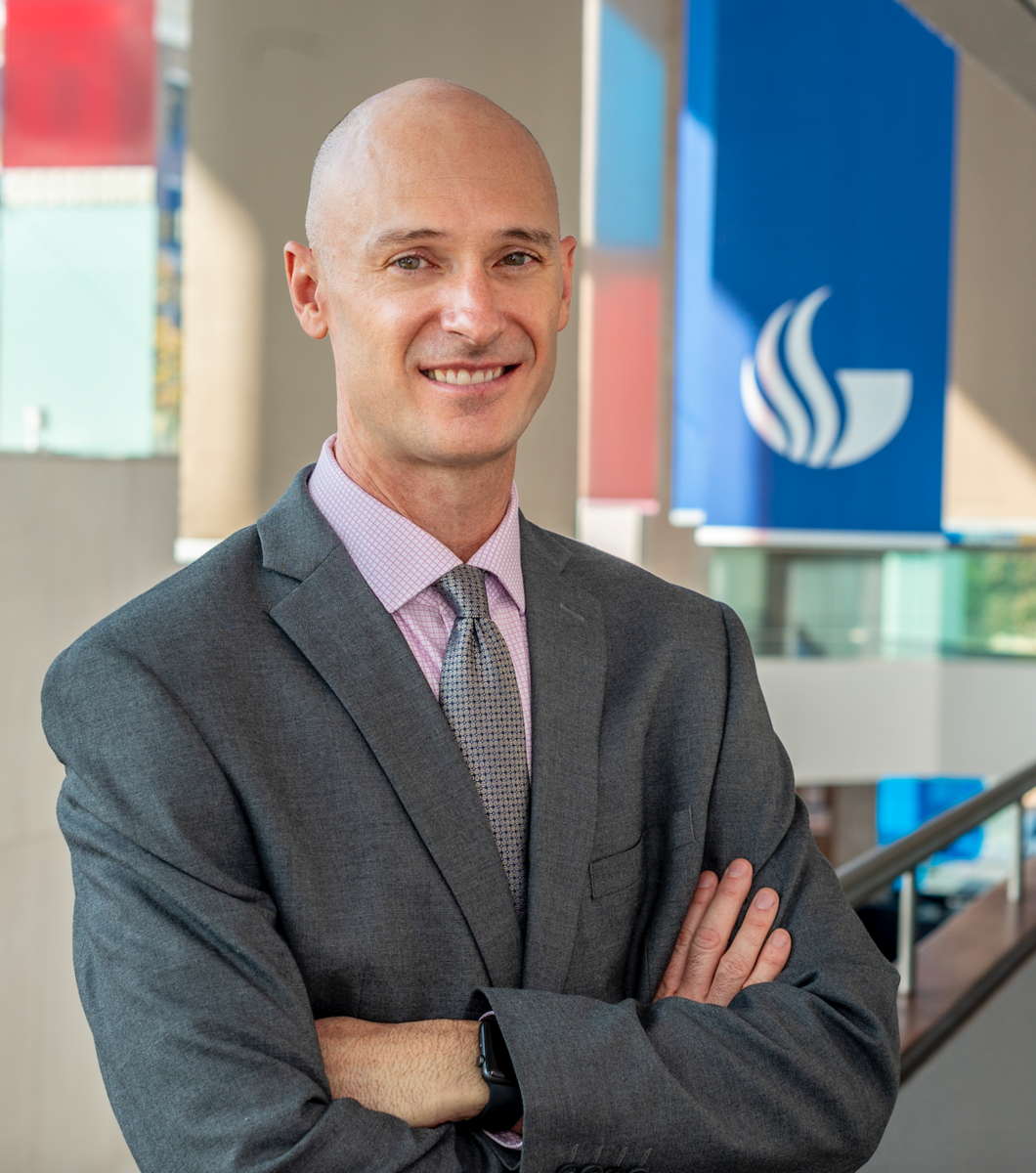Georgia Research Alliance Trustees Name New President and CEO
Tim Denning, Ph.D. will succeed retiring Susan Shows in November

The Trustees of the Georgia Research Alliance voted today to appoint Timothy Denning, Ph.D., vice president for research and economic development at Georgia State University, as the fifth president and CEO of GRA. He will take the reins from Susan Shows, who announced her retirement in a planned succession after serving GRA since 2001 and as president and CEO since September 2020 .
Denning, who will take the helm of the Alliance November 1, has led research and commercialization through a period of historic growth at Georgia State. Last month, the university announced it had earned just under $225 million in research funding for FY2023, the highest total in university history.
The university now has more than 70 research centers, including five university-level enterprises that address critical quality-of-life issues such as cancer, cardiovascular disease, brain health and infectious disease. It is also home to nine members of GRA’s Academy of Scientists.
“The extraordinary value GRA creates for our state begins with growing the capacity of Georgia’s research universities to be more competitive in winning grants and addressing some of the greatest challenges facing our world,” says GRA Board Chair David Ratcliffe. “Over a 20-year career, Tim Denning has come to know the world of university research inside and out. He brings not only a wealth of experience and expertise to the Alliance but also a deep understanding of how to build partnerships to drive greater results.”
“I am delighted to join the GRA team and contribute to the thriving collaboration among research universities, the business sector and state government to drive economic growth in Georgia,” Denning says. “By expanding university research and entrepreneurship in our state, GRA plays a unique role in generating new innovations that benefit the people of Georgia and beyond. I look forward to growing GRA’s impact.”
Denning arrived at Georgia State in 2013, joining the university’s Institute for Biomedical Sciences from a research and academic tenure at Emory University. Two years later, he was appointed associate director of the institute, and in November 2020 was named vice president for research and economic development. Notably, he has worked in research centers led by two GRA Eminent Scholars – the Emory Vaccine Center, headed by Rafi Ahmed , and Georgia State’s Institute of Biomedical Sciences, led by Jian-Dong Li.
At Emory, Denning worked on a number of funded research projects in the School of Medicine. His scientific focus is on the body’s immune response inside the gastrointestinal system, particularly its role in regulating the chronic condition of Inflammatory Bowel Disease (IBD). He arrived at Emory in 2004 as a postdoc fellow after holding a similar fellowship at the acclaimed La Jolla Institute for Immunology in San Diego.
Denning’s leadership at Georgia State reflects a breadth and depth of activity that accelerated an already-growing research enterprise. He spearheaded several initiatives to promote interdisciplinary research, innovation and scholarship and cultivated partners in academia, industry and the scientific community. He was also key to bringing top researchers to the university and developed programs to provide students with research experience in the private sector.
“A hallmark of GRA’s working model is forging strong collaborations to grow research and entrepreneurship at Georgia’s universities,” says GRA President and CEO Susan Shows. “Team building is very much a part of Tim Denning’s DNA, and he is an excellent choice to lead the Alliance into its next phase of success.”
Source: https://gra.org/blog/223




